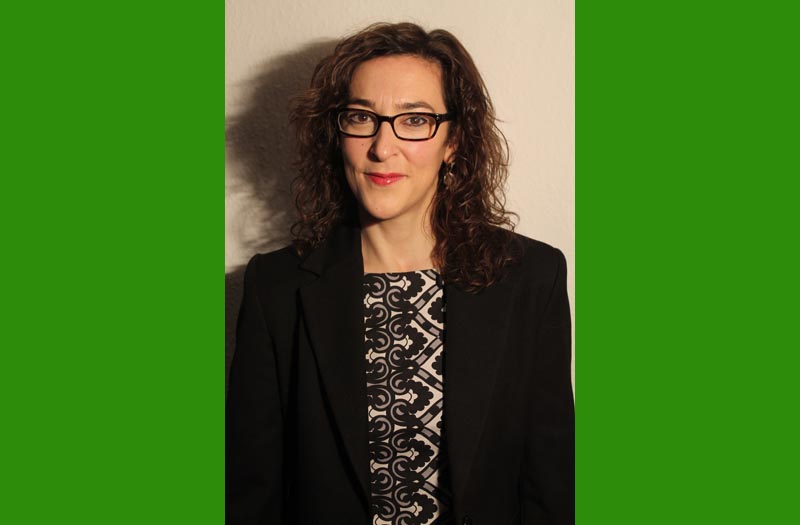Joseba Etxarri. When she left her neighborhood, Aiete, in her hometown, Donostia, her house was where the Basque Culinary Center is now. She thought then that she was going for a short time to practice the German that she had learned during her studies in tourism and public relations. More than 20 years later, it’s clear that her trip to Germany was extended. Ainhoa works as an administrator in a German office, and is mother of two pre-teens she speaks Basque to. On top of everything she is also the president of the Gernika Deusch-Baskischer Kulturverein, Berlin’s Basque club.
-We are currently aware of Germany, since the crisis has driven many Basque youth to go there in search of work.
-There has been kind of a boom that has created some unreal expectations. Many youth come here looking for work and specifically in Berlin they have a hard time. The municipal coffers don’t have money and there is a higher unemployment rate than in other parts of Germany. The jobs that they are finding are cleaning houses or hotels, or in restaurants, as waiters and waitresses. They are not paid very well, normally around six euros an hour. In Berlin, there is not industry, only tourism and services, it’s not like in Munich, Frankfurt or Cologne.
-Last years we have learned a new word, mini-jobs.
-They originally were thought for one thing, and are settling for something else. They were supposed to promote the employability of young people, who are after an apprenticeship in a company, could then be hired there. It’s clear that it's not posible to life with with 400 Euros a month, and that now has now been increased to 450, when just rent is at least 800 or 900 Euros. On the other hand, they have tightened up the conditions for public aid and there are now stricter controls to qualify for them.
-Do you have some advice for someone thinking about going there?
-The first thing I would say is that it's convenient to come with a minimum level of German. It’s hard to find work and even harder to find a decent job with decent pay. Another thing is that there can be Basque youth for whom finding a job is not at the forefront, but for example, learning or improving the language or taking advantage of the cultural and vital opportunities that Berlin has to offer.
-How did you fit into Germany?
-At first it was really hard. I am a family person and it was hard to be so far away from by parents and my two sisters. I remember being shocked at first, for example, to call a German friend to get together in the afternoon or the next day, and getting the response that they were already booked and so I should make my plans ahead of time since you should never call anyone the day before. That was strange to me. That is how I met a guy from Madrid that invited me to participate in some folklore classes. I went on a Saturday and they played Turkish folklore and I fit in well. Apart from those classes they used to invited me and I realized that I had more affinity with them than with my German friends. That is also where I met my future husband, Atilla.
-How many languages do you speak?
-Basque, Spanish, German, English, and Turk – five.
-You have two children…
-A fourteen year-old boy, Adei, with a Basque name, and a eleven-year old girl, Aylin, with a Turkish name, that means moon flash.
-And they speak…
-Basque with their mother, and Turkish with their dada, German with their Friends, English at school and now Adei is also studying Spanish at school as a second foreign language and does pretty well; and Ayline will chose a second one when she is in the 7th grade, she has already said that she will choose Spanish.
-You still have time for the Basque club…
-The Gernika Deusch-Baskischer Kulturverein Association, that I have belonged to since its inception, was founded by Germans in the 90s and since 2009 we have been recognized by the Basque Government as a Basque club. The Etxepare Basque Institute also has three lecturers in Germany, in Berlin, Leipzig and Frankfurt, where Basque language and culture are taught, and those three individuals are also active members of the club. Working together and coordinating are verbs that we conjugate a lot. Next Saturday, for example, we are hosting Basque singer Javier Muguruza, who is coming with pianist Mikel Azpiroz, and we have an interesting program of activities planned through the end of the year that includes literary, musical and cinematographic offerings.






 Send to a friend
Send to a friend Add comment
Add comment








